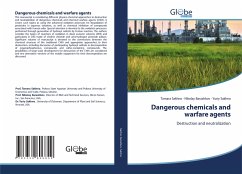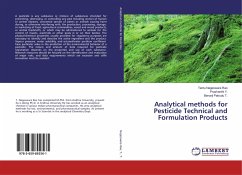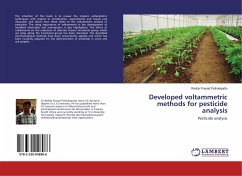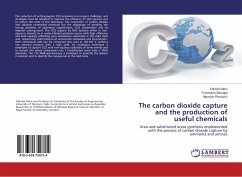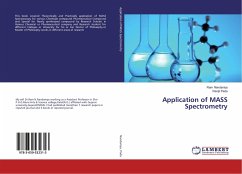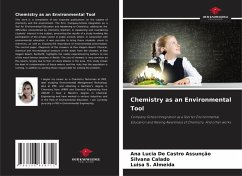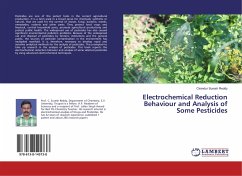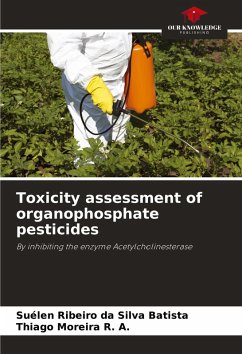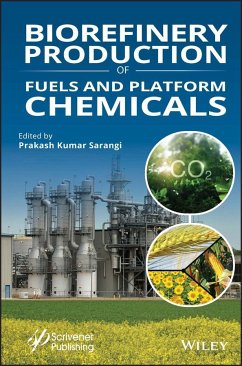
Pesticides and chemicals with endocrine disrupting potential
Versandkostenfrei!
Versandfertig in 6-10 Tagen
82,99 €
inkl. MwSt.

PAYBACK Punkte
41 °P sammeln!
Endocrine disrupters compounds (EDCs) enclose many pesticides (as glyphosate and organochlorinated), plasticizers (as phthalates and bisphenol A), industrial chemicals (as alkylphenols and dioxins), pharmaceuticals and cosmetics (as synthetic estrogens, fungicides, paraben esters and UV filters), and substances of the natural occurrence (as mycotoxins and phytoestrogens). They affect as organogenesis of fetuses as function of glands and organs of adult people. However, fetuses, babies, children and teenages are most susceptible subjects to their effects. EDCs interfere with function of the rep...
Endocrine disrupters compounds (EDCs) enclose many pesticides (as glyphosate and organochlorinated), plasticizers (as phthalates and bisphenol A), industrial chemicals (as alkylphenols and dioxins), pharmaceuticals and cosmetics (as synthetic estrogens, fungicides, paraben esters and UV filters), and substances of the natural occurrence (as mycotoxins and phytoestrogens). They affect as organogenesis of fetuses as function of glands and organs of adult people. However, fetuses, babies, children and teenages are most susceptible subjects to their effects. EDCs interfere with function of the reproductive system, homeostasis of thyroidal hormones, hypothalamus-hypophysis axis, cause obesety, metabolic syndrome, and induce several types of cancer. Recently, it was demonstrated that they may provoke transgerational effects, by the epigenetic way. Although EDCs of the natural occurrence always were in the nature, after the industrial development it there was greater exposure of humans by chemicals spread in the environment. Despite EDCs are every day in the modern life style, to recognize their existence and to know some of them could reduce human exposure and prevent health problems.



